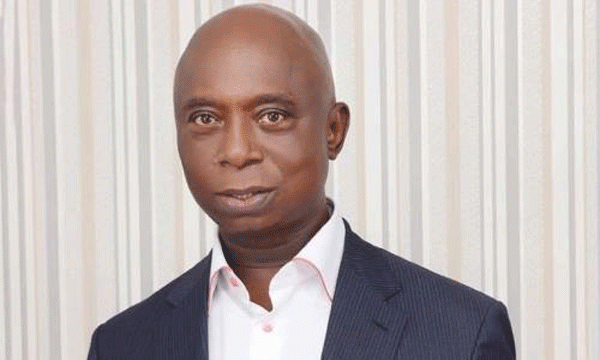Paragraph 1: The Genesis of Discontent
Senator Ned Nwoko’s defection from the Peoples Democratic Party (PDP) to the All Progressives Congress (APC) has ignited a political firestorm in Delta State, Nigeria. Nwoko, representing Delta North in the National Assembly, attributes his departure to deep-seated disagreements with the PDP leadership, primarily concerning the creation of Anioma State, a long-standing aspiration of the people of Delta North. This ambition, which Nwoko championed throughout his political career, became a central point of contention between him and the PDP hierarchy, particularly Governor Sheriff Oborevwori and former Governor Ifeanyi Okowa, both of whom also hail from Delta North. Nwoko argues that the PDP’s steadfast opposition to the creation of Anioma State left him with no choice but to seek a more accommodating political platform.
Paragraph 2: Accusations of Political Sabotage
Beyond the Anioma State issue, Nwoko levels accusations of political marginalization against the PDP leadership. He claims that Governor Oborevwori deliberately obstructed his efforts to deliver on campaign promises by denying funding for critical projects. These projects, including the Okpai power plant and the Ogwashi-Uku dam, were central to Nwoko’s electoral campaign, and their non-implementation has fueled resentment among his constituents. Nwoko alleges that he was further sidelined by being excluded from key decision-making processes, such as the appointment of board members, commissioners, and local government chairmen. This systematic exclusion, Nwoko contends, effectively rendered him powerless within the PDP structure and hampered his ability to serve his constituency effectively.
Paragraph 3: The Search for Political Leverage
Nwoko’s decision to join the ruling APC is framed as a strategic move to gain the necessary political leverage to fulfill his campaign promises and advance the cause of Anioma State. He argues that the APC, being the dominant party at the federal level, possesses the resources and influence to facilitate the creation of the new state. Moreover, Nwoko believes that his alignment with the ruling party will enable him to secure the funding required to implement the development projects he promised his constituents. This calculated shift in political allegiance reflects Nwoko’s determination to deliver tangible results to his constituency, even if it means abandoning his long-time political home.
Paragraph 4: The PDP’s Response: Dismissive and Unfazed
The PDP, for its part, has responded to Nwoko’s defection with a mixture of dismissiveness and defiance. Governor Oborevwori’s aide, Fred Oghenesivbe, attributes Nwoko’s departure to a fear of losing the PDP ticket in the upcoming 2027 election, suggesting that Nwoko’s move is motivated by political self-preservation rather than genuine ideological differences. Charles Aniagwu, the Delta State Commissioner for Information, echoes this sentiment, downplaying the significance of Nwoko’s defection and expressing confidence in the PDP’s continued dominance in Delta North. Aniagwu points to Nwoko’s previous defections to other parties as evidence that his departure will not significantly impact the PDP’s electoral prospects.
Paragraph 5: A History of Political Maneuvering
Nwoko’s political trajectory is marked by a series of party affiliations and shifts in allegiance. His previous defections to the All Progressives Grand Alliance (APGA) in 2003 and the Democratic Peoples Party (DPP) in 2011 underscore his willingness to navigate the complex political landscape in pursuit of his goals. These prior defections, while unsuccessful in securing him electoral victory, demonstrate a pattern of political maneuvering that characterizes Nwoko’s approach. The PDP’s current dismissive stance towards Nwoko’s latest defection draws heavily on this history, portraying him as a political opportunist rather than a principled politician.
Paragraph 6: The Road Ahead: Uncertainty and Political Stakes
Nwoko’s defection to the APC and the ensuing political fallout have created a climate of uncertainty in Delta State politics. The PDP’s confidence in retaining its stronghold in Delta North will be tested in the upcoming elections, while Nwoko’s ability to deliver on his promises under the APC banner remains to be seen. The Anioma State issue will continue to be a central theme in the political discourse, with Nwoko now positioned to leverage his new political platform to advance this cause. The political stakes are high for all involved, and the future of Delta North politics hinges on the evolving dynamics between Nwoko, the PDP, and the APC.














